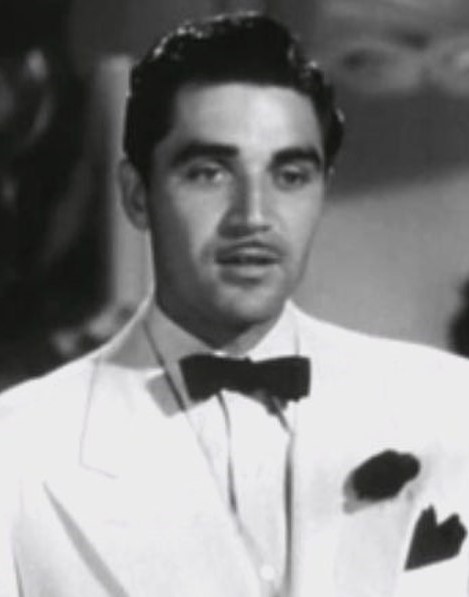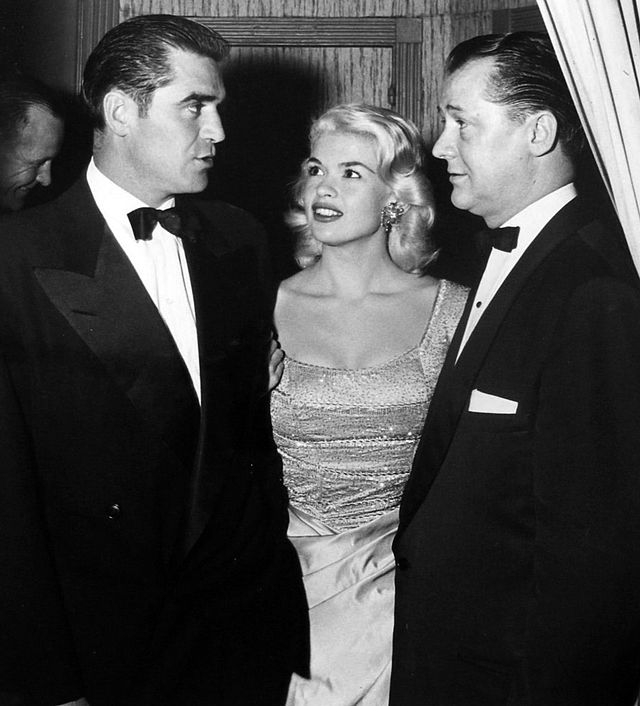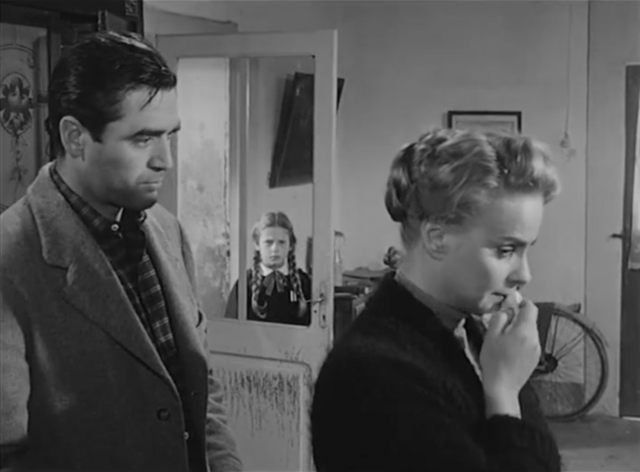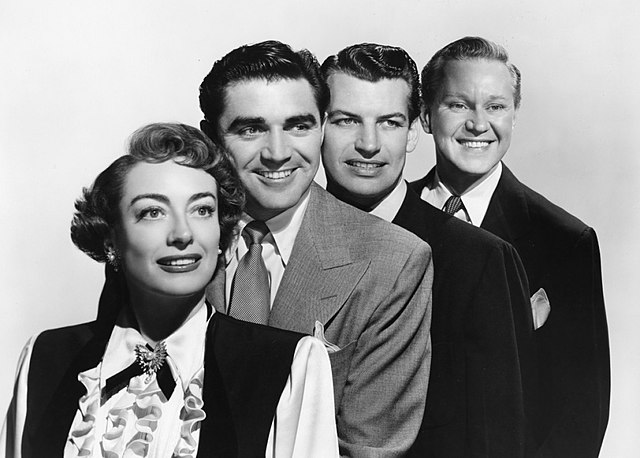Steve Cochran (1917 – 1965)
Biography and Movie Career
Steve Cochran, born Robert Alexander Cochran on May 25, 1917, in Eureka, California, was an American actor renowned for his smoldering intensity, dark good looks, and ability to portray morally ambiguous characters. His life story is one of ambition, success, heartbreak, and mystery, marked by an untimely and enigmatic death.
________________________________________
Early Life and Education
Steve Cochran was born to a working-class family in Northern California. Raised in a modest environment, he demonstrated an early interest in the performing arts. After graduating from high school, he enrolled at the University of Wyoming, where he initially studied law. However, his passion for acting led him to abandon his legal aspirations and focus on drama.
At university, Cochran honed his acting skills in stage productions, gaining the confidence to pursue a career in Hollywood. After graduation, he moved to Los Angeles to chase his dream of becoming a movie star. His good looks and natural charisma helped him find work, but his early years in Hollywood were marked by struggle and perseverance.
________________________________________
Path Toward Success
Cochran began his career performing in small theater productions and as a contract player for Warner Bros. in the early 1940s. His breakout came in 1949 with the film White Heat, where he starred opposite James Cagney. In this gritty crime drama, Cochran delivered a chilling performance as a sociopathic gangster. The film’s critical and commercial success established him as one of the most promising new faces in Hollywood.
Throughout the 1950s, Cochran built a reputation as a leading man in film noir, westerns, and romantic dramas. His notable roles include Tomorrow Is Another Day (1951), where he portrayed a reformed ex-convict, and Private Hell 36 (1954), a taut noir about corruption and greed. He also starred in lighter fare such as the musical The Desert Song (1953), showcasing his versatility as an actor.
In the latter part of his career, Cochran ventured into independent filmmaking. He founded Robert Alexander Productions and directed and starred in the 1961 film Tell Me in the Sunlight. This venture demonstrated his ambition to control his creative output and expand his legacy in Hollywood.
________________________________________
Personal Life and Marriages
Steve Cochran’s personal life mirrored the drama of his film roles. Handsome and charismatic, he was a known ladies’ man with a long list of romantic relationships. He was married three times: to actress Fay McKenzie, Florence Lockwood, and Jonna Jensen. Each of these unions ended in divorce, with Cochran’s restless nature and rumored infidelities often cited as contributing factors.
Despite his turbulent love life, Cochran’s charm and affability made him a beloved figure among friends and colleagues. He had one daughter, Xandra Cochran, with his third wife, Jonna Jensen. Cochran reportedly adored his daughter and sought to spend time with her despite his busy schedule.
________________________________________
Passions Beyond Acting
Outside of acting, Cochran had several passions. He was an avid yachtsman and enjoyed spending time on the ocean. His love for sailing was a significant part of his personal life, and he often used his yacht as a retreat from the pressures of Hollywood.
Cochran was also interested in the cultural and social issues of his time. He traveled extensively, especially in Latin America, where he engaged with local communities and expressed admiration for their traditions. He hoped to use his independent film company to produce socially relevant stories that reflected his experiences abroad.
________________________________________
Mysterious Death
Steve Cochran’s life came to a tragic and mysterious end on June 15, 1965, at the age of 48. He was aboard his yacht off the coast of Guatemala with three young women who worked as part of the crew. Cochran reportedly fell ill during the voyage, and the yacht drifted for several days before being discovered.
When the authorities boarded the yacht, they found Cochran deceased. The cause of death was officially listed as acute infectious edema, which caused severe swelling and fluid buildup in his lungs. However, the circumstances of his death, combined with his Hollywood notoriety, sparked rumors and speculation about foul play or negligence. The three women aboard the yacht were unharmed but offered conflicting accounts of Cochran’s final days.
________________________________________
Legacy
Steve Cochran’s career spanned over two decades and left a lasting impression on Hollywood. Known for his smoldering on-screen presence, he brought depth and complexity to his characters, particularly in film noir and crime dramas. Though his career was cut short, his work remains a testament to his talent and versatility as an actor.
Cochran’s untimely death added an air of mystery to his legacy, making him one of the most enigmatic figures in classic Hollywood. Today, he is remembered as a compelling performer whose life and career embodied the glamour, allure, and tragedy of the Golden Age of Hollywood.
Measurements Steve Cochran
• Height: 6 feet 1 inch (185 cm)
• Weight: Approximately 180 pounds (82 kg)
• Build: Athletic and muscular, fitting his roles as rugged antiheroes or imposing villains.
• Hair: Dark brown
• Eyes: Brown
Steve Cochran Documentary
Steve Cochran’s Acting Style
Steve Cochran possessed an acting style that was as multifaceted as the roles he played, marked by a potent combination of charisma, intensity, and vulnerability. His performances often left an indelible impression, not only for their physical magnetism but also for the psychological depth he brought to his characters. Here’s a closer look at the key elements that defined his acting style:
________________________________________
Charismatic Presence
Cochran’s screen presence was magnetic, driven by his dark good looks, confident demeanor, and commanding voice. Whether portraying a suave romantic lead or a menacing villain, he exuded a natural charm that made him captivating to watch. This charisma allowed him to dominate the screen even when sharing it with iconic actors like James Cagney (White Heat) or Ida Lupino (Private Hell 36).
His ability to balance charm and danger was particularly evident in his roles as antiheroes and morally ambiguous characters. He could be smooth and alluring one moment, then menacing and unpredictable the next.
________________________________________
Complexity and Layers
Cochran had a knack for portraying characters with internal conflict or hidden motivations. He often played men who were at a crossroads—torn between their desires, moral obligations, and darker impulses. This complexity was particularly striking in films like Tomorrow Is Another Day, where he portrayed an ex-convict seeking redemption but unable to escape his violent past.
Cochran’s nuanced approach to acting brought humanity to even his most villainous roles. For instance, in White Heat, he played Big Ed Somers, a scheming criminal, but infused the character with an undercurrent of desperation and ambition, making him more than a stereotypical bad guy.
________________________________________
Naturalistic Performances
Unlike some of his contemporaries who leaned into theatricality, Cochran’s style was grounded and realistic. His delivery was understated, relying on subtle facial expressions, body language, and vocal inflection to convey emotion. This approach gave his performances an authenticity that resonated with audiences, particularly in noir films where characters often grappled with moral ambiguity and existential dread.
Cochran’s naturalism was especially evident in his romantic scenes. He had a way of making on-screen chemistry feel genuine, whether portraying an earnest lover in Come Next Spring or a tempestuous partner in Of Love and Desire.
________________________________________
Command of Physicality
Cochran’s physicality played a significant role in his acting style. His tall, athletic frame and confident gait often made him a dominating figure on screen. He used his physicality to embody the raw masculinity and strength required for his roles, whether as a gangster in Highway 301 or a rugged horseman in The Lion and the Horse.
However, Cochran’s physicality was not merely about strength—it also conveyed vulnerability. In Tomorrow Is Another Day, his posture and movement subtly communicated the awkwardness and insecurity of a man trying to adjust to life outside prison.
________________________________________
Versatility Across Genres
Cochran’s acting style was versatile, allowing him to transition seamlessly between genres. In noir films, he mastered the brooding intensity and moral ambiguity essential to the genre. In Westerns, he embodied rugged individualism and stoic heroism. In romantic dramas, he revealed a tender, emotional side that made his characters relatable and compelling.
This versatility was a testament to his range as an actor, as he could adapt his style to suit the tone and demands of each role while maintaining the authenticity of his performance.
________________________________________
Underrated Emotional Depth
While Cochran was often cast in roles emphasizing his looks and charisma, he brought unexpected emotional depth to his performances. His portrayal of flawed, conflicted men often hinted at unspoken pain or longing, adding layers to characters that might have otherwise seemed one-dimensional.
For example, in Carnival Story, he played a manipulative carnie who seduces a naïve young woman, but his portrayal subtly suggested a man driven by insecurity and fear of failure. This emotional complexity elevated his roles beyond typical archetypes.
________________________________________
Bold Choices in Independent Work
Cochran’s acting style evolved over his career, particularly when he transitioned into independent filmmaking. In Tell Me in the Sunlight, which he also directed, his performance was more introspective and experimental, reflecting his desire to explore themes of love, loneliness, and human connection. This work demonstrated Cochran’s willingness to take creative risks and challenge himself as an artist.
Personal Quotes
• “Playing the bad guy is always more fun. You get to do all the things you’d never dare to do in real life and still walk away clean at the end of the day.”
• “Acting isn’t about being someone else—it’s about finding the truth in yourself and putting that into the character.”
• “Hollywood’s a strange place. You can be a star one day and forgotten the next, but the work is what matters. It’s the only thing that lasts.”
• “There’s no script for life. You just go out there, take your chances, and hope you hit your mark.”
• “I never wanted to be perfect—just interesting.”
• “I don’t regret much in life. If you don’t take risks, you’re not really living.”
• “Love isn’t something you plan; it just happens. And when it does, it’s messy, unpredictable, and the most real thing you’ll ever feel.”
• “You can wait forever for someone to give you a chance, or you can make your own. That’s what I’m doing.”
• “Every story deserves to be told, especially the ones no one else is brave enough to tell.”
• “You don’t set out to make a legacy—it’s what’s left behind when you’re gone. All you can do is hope the work speaks for itself.”
Awards and Recognition
Steve Cochran’s career spanned over two decades, during which he gained recognition for his captivating performances in film noir, crime dramas, and Westerns. However, unlike many of his contemporaries, Cochran did not receive significant formal awards or nominations during his lifetime. This absence of accolades is often attributed to his career being overshadowed by the larger stars of his era and the fact that he frequently played supporting or morally ambiguous roles rather than leading characters in prestigious projects.
Movies with Steve Cochran
1940s
• 1945: Wonder Man
A zany musical comedy starring Danny Kaye, where Cochran has a small role. The film follows a nightclub singer who helps his twin brother solve his murder.
• 1946: The Chase
A noir thriller about a World War II veteran drawn into a deadly game after becoming a chauffeur for a criminal couple. Cochran plays a supporting role.
• 1946: The Best Years of Our Lives
This Oscar-winning drama explores the struggles of three World War II veterans reintegrating into civilian life. Cochran has a minor role as an opportunistic man.
• 1948: High Wall
A suspenseful noir about a man accused of murdering his wife. Cochran plays a psychiatrist trying to uncover the truth.
• 1949: White Heat
Cochran shines as Big Ed Somers, the scheming gangster vying for control of a criminal organization from James Cagney's psychotic Cody Jarrett.
• 1949: The Kid from Texas
A Western about the legend of Billy the Kid. Cochran has a supporting role in this action-packed retelling.
________________________________________
1950s
• 1950: Highway 301
A gripping crime film where Cochran stars as the ruthless leader of a gang of bank robbers. His chilling performance anchors this noir thriller.
• 1950: Dallas
A Western about a former Confederate officer seeking revenge for his family's murder. Cochran plays the outlaw Slim Murty.
• 1951: Inside the Walls of Folsom Prison
A prison drama about the brutal conditions inside Folsom Prison, with Cochran portraying a compassionate new warden determined to reform the system.
• 1951: Tomorrow Is Another Day
A noir drama in which Cochran stars as an ex-convict who falls in love with a dance hall girl, only to find themselves on the run after a murder.
• 1951: The Tanks Are Coming
A World War II film following the crew of a Sherman tank during the Allied advance in Europe. Cochran plays one of the soldiers.
• 1952: The Lion and the Horse
A family-friendly Western about a man who bonds with a wild stallion. Cochran stars as the rugged horseman, Ben Kirby.
• 1953: The Desert Song
A musical adventure film in which Cochran plays Captain Fontaine, a French officer battling a mysterious rebel leader in North Africa.
• 1953: Back to God's Country
Cochran stars as a ship captain navigating the Arctic who must protect his wife and crew from a treacherous mutiny.
• 1954: Private Hell 36
A gripping noir about two detectives tempted by stolen money. Cochran delivers a standout performance as one of the morally compromised cops.
• 1954: Come Next Spring
A heartfelt drama where Cochran plays a man returning home after years of absence, trying to reconnect with his family and past life.
• 1955: Sincerely Yours
A romantic drama featuring Cochran as the charming rival of Liberace’s character, a pianist who regains his hearing after surgery.
• 1955: Carnival Story
A melodrama set in the world of a traveling carnival. Cochran stars as a manipulative performer who seduces a naïve young woman.
• 1956: The Weapon
A British-American crime film where Cochran plays an American investigator trying to locate a boy who accidentally takes a loaded gun.
• 1956: The Deadly Companions
A gritty Western in which Cochran stars as a man escorting a woman across dangerous territory to bury her son.
________________________________________
1960s
• 1961: Tell Me in the Sunlight
Cochran directed and starred in this romantic drama about a sailor who falls in love with a nightclub dancer. It marked his foray into independent filmmaking.
• 1965: Mozambique
An adventure film set in Africa where Cochran plays an out-of-work pilot embroiled in a smuggling operation.
• 1965: Of Love and Desire
A romantic drama in which Cochran portrays a man caught in a tempestuous love triangle. It would be one of his final films before his untimely death.
________________________________________
Short Synopses by Theme
Cochran’s filmography is rich with:
• Film Noir (White Heat, Tomorrow Is Another Day, Private Hell 36)
• Westerns (Dallas, The Lion and the Horse)
• Crime Thrillers (Highway 301, The Weapon)
• Romantic Dramas (Carnival Story, Of Love and Desire)




